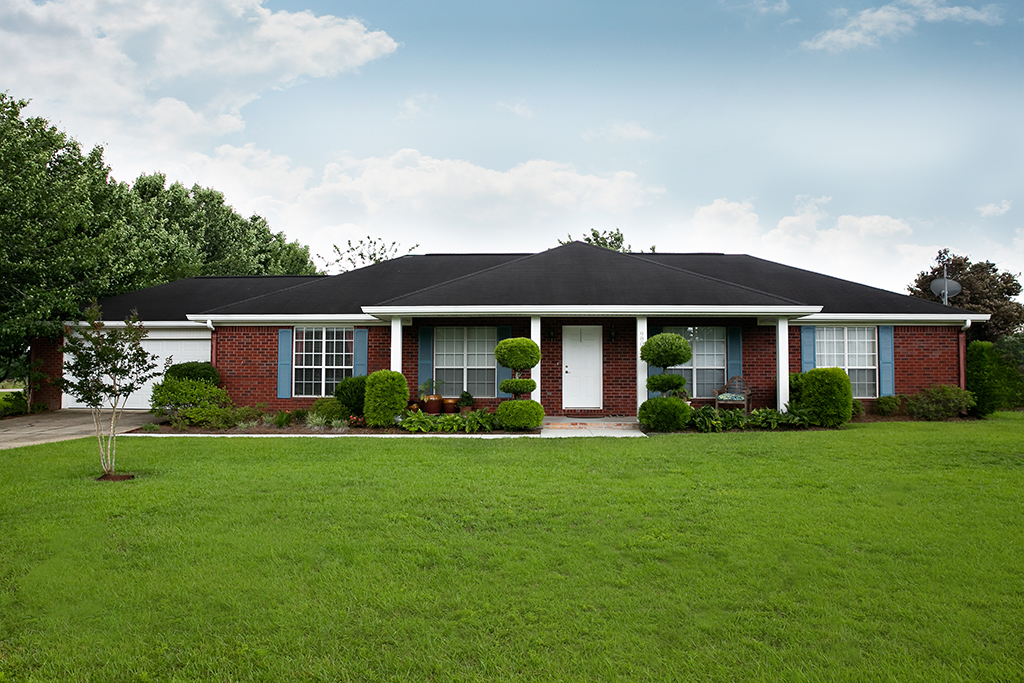
Electrical Service: Typical Electrical Wiring Problems of Older Homes | Myrtle Beach, SC
Photo By Ursula Page at Shutterstock
Older homes often have a variety of electrical wiring problems. These problems are often hidden and only a licensed electrical services provider can find them. The fact is that as time passes, regular daily use deteriorates any electrical system. Deteriorated electrical systems are a ticking time bomb that can lead to property damage as well as injury or death. Any older home should be inspected by a licensed electrical services provider, even homes built as recently as 2017 should be inspected. The National Electrical Code or NEC, has updated the code 17 times since 2017 alone. Wiring that was considered safe just years ago could potentially be unsafe by today’s revised standards.
We will discuss some common problems found in older homes that a licensed provider can easily correct.
Aluminum Wiring
This type of wiring was used as a money-saving substitute for copper in the 1960s and 1970s. The problem with this type of wiring is that the aluminum corrodes after contacting any copper, such as the copper found in everyday light fixtures. Your electrical services provider can simply retrofit a dielectric wire nut onto each copper-aluminum connection.
Knob and Tube Wiring
This type of wiring was common from 1880 to the 1930s. If your home was built in this period you may well have K&T wiring. Knob and tube wiring is dangerous because the insulation used to protect the wire is often by today’s day and age are worn out. This can easily lead to a fire. Replacing knob and tube wiring is not cheap. You may also have problems selling or refinancing your home if your home has this type of wiring.
Backstabbed Wires
These are simply wires that are pushed into the backs of switches and outlets instead of being connected to screw terminals. This is a severe fire hazard and should be addressed by an electrical provider. The fix is however an easy fix, your electrician simply needs to connect the wires to proper terminals.
GFCIs Not Installed
Many older homes do not use GFCIs also known as ground fault circuit interrupters. These outlets provide protection against shock and electrocution. These tend to be installed in wet areas in and outside of the home. They can be found in bathrooms, basements, crawlspaces, kitchens, outdoor outlets, and swimming pools, basically anywhere there’s water and risk of fatal electrical shock. If you do not have these installed it is not expensive for your local Myrtle Beach, SC electrical services provider to install GFCIs.
Junction Boxes Exposed or Rusted
If your junction box is exposed to the elements you run the risk of damaged wiring and electrical shock. A new cover is an easy inexpensive fix to this problem that your local electrical services provider can easily fix. Your electrician can also change out your entire box if it is too degraded due to damage from the elements.
Outlet Shortage
Modern homes tend to have more outlets as we use more electricity today than we did in say the 1960s. Many older homes lack an adequate supply of power outlets. This leads many in older homes to resort to using power strips and extension cords. Extension cords are never meant to be a long term fix and should never be used for appliances such as an AC or heater. Extension cords can also cause overloaded circuits, power failure, and even fires.
Over-lamping
Many older homes have light fixtures that do not accommodate today’s higher wattage bulbs. Older light fixtures often cannot safely handle today’s light bulbs. The intense heat from newer light bulbs can burn and melt the socket and or the wire insulation. This can cause arcing which can result in a fire due to sparks. The fix for this is simply updating the light sockets or fixtures, which any electrical services provider can easily fix.
Overwired Panels
These are simply panels that hold more circuits than what its rating can handle. This is a major fire and building code violation, so it should be addressed right away. If you are planning to sell your home chances are the inspector will find this problem. Thankfully this is an easy fix, your local electrician can easily add a subpanel with extra slots eliminating this fire hazard.
Ungrounded Outlets
Older homes tend to have just 2-pronged outlets. 2-pronged outlets are not grounded so there is no safe way to discharge stray current. Many people get around this by using a plug with 2 prongs with a receptacle that has 3 prongs. These are known as cheater plugs allowing you to plug-in devices with 3 prongs such as a computer. The hazard with cheater plugs is that the grounding tab is not connected to an electrical ground. You should have a Myrtle Beach, SC electrical services provider install outlets with Ground Fault Circuit Interrupter, otherwise known as GFCI breaker outlets.
Worn Receptacle Contacts
Worn receptacle contacts or outlets can allow electric plugs to become loose and fall out. The danger here is that loose contacts can arc electricity and ignite. This is easily fixed by your local electrical services provider who can replace the outlets in question with new receptacles.
If you have an older home you should have it inspected by your local electrical services provider. Your home may have been inspected by a home inspector before buying it but these professionals often lack the fine skills of an electrician when it comes to finding all electrical issues. Each year thousands of fires are caused in older homes due to faulty electrical systems. The cost of an inspection is not that high as compared to the risk of losing your home or even dying in a fire due to faulty electrical wiring.
If you are in doubt as to if your home is an electrical fire hazard call the experts at Mister Sparky of Myrtle Beach today and schedule an electrical system inspection today. Do not become part of the grim statistics of home electrical fires, call us today at 843-213-6610.

